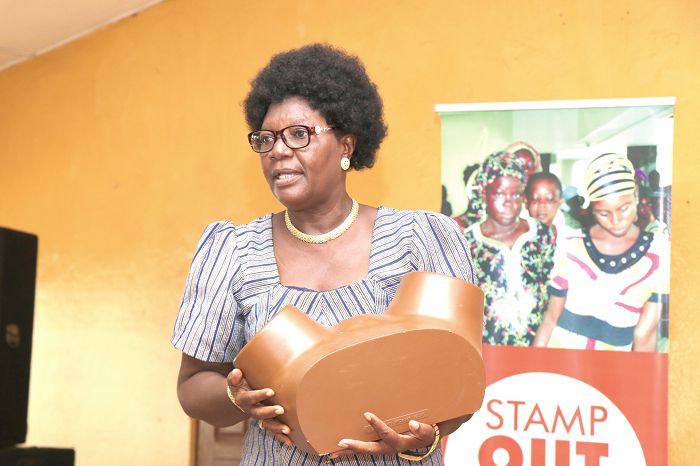
Eliminating FGM: Ghana reviews progress, charts way forward
Today, Ghana is joining the international community to commemorate International Day of Zero Tolerance for Female Genital Mutilation (FGM) to create awareness of the inhumane act.
Aside from being a human rights violation, FGM is also a form of Sexual and Gender-Based Violence as the practice involves altering or injuring the female genitalia for non-medical reasons, and it is internationally recognised as a human rights violation.
Advertisement
Globally, it is estimated that some 200 million girls and women alive today have undergone some form of FGM, with more than 125 million girls and women having been cut in the 29 countries in Africa and the Middle East where FGM is concentrated.
Although FGM is declining, most of the countries where it is prevalent are also experiencing a high rate of population growth – and this implies that the number of girls who undergo FGM will continue to grow if the practice continues at its current levels.
Women and girls who have undergone FGM risk severe pain, excessive bleeding, shock, genital tissue swelling, impaired wound healing and even death. Long-term consequences of the practice include chronic genital, reproductive tract and urinary tract infections, painful urination, painful intercourse and menstrual problems.
Other risks of FGM include keloids, obstetric complications, perinatal risks, reduction of sexual quality, psychological consequences among other things.
FGM in Ghana
Many women have undergone FGM in Ghana and many more women and girls are at risk every year. The majority of girls are cut before they turn 15.
In Ghana, FGM is prevalent in the northern part of the country with higher prevalent rates among different districts and communities. It is hypothesised that the higher prevalence of FGM in northern Ghana resulted from the mixture of the people and culture of northern Ghana with those of the neighbouring countries of Mali, Togo and Burkina Faso, where the practice is more common.
In 1994, the government outlawed female circumcision following a crusade led by a former First Lady, Mrs Nana Konadu Agyeman Rawlings, and the Ghana Association of Women Welfare (GAWW) which succeeded in having the Criminal Code, 1960 (Act 29) amended to include the practice of FGM.
The amendment makes FGM a crime punishable by three years’ imprisonment.
In spite of this development, the deeply ingrained practice still goes on, with the highest incidence in the Bawku Municipality and the Pusiga District of the Upper East Region.
Accelerating action
The United Nations Population Fund (UNFPA) Country Representative, Mr Niyi Ojuolape, says eliminating FGM is a critical step towards realising the SDGs on good health and well-being.
“In every society where it is practised, FGM is a manifestation of deeply entrenched gender inequality. It persists for many reasons but no matter the reason, we have to as a country abandon this inhumane practice,” he emphasised.
It is for this reason, he said, that UNFPA Ghana continued to accelerate action to eliminate FGM in Ghana, ensuring the rights and dignity of all women and girls were protected.
Mr Ojuolape said this year’s International Zero Tolerance Day for FGM would serve as an avenue to assess progress made in the fight against ending the practice and accelerating efforts moving forward.
It will focus on mobilising youth around the elimination of harmful practices, including FGM, on the theme: "Unleashing Youth Power: One decade of accelerating actions for zero female genital mutilation”.
2020 Commemoration
A stakeholder’s engagement is scheduled to take place today in Pusiga, which is one of the epicentres of the practice in Ghana.
Traditional rulers, religious heads, FGM executors, students, FGM survivors and young people will participate in the engagement which aims to increase the capacity of policy and decision to tackle FGM, dispel myths and misconceptions about the practice and enable young people, community-based civil society organisations and faith-based organisations to be key actors in tackling FGM among others.
At the end of the event, the stakeholders are expected to renew their commitment towards ending FGM by reviewing progress made and developing action plans.




